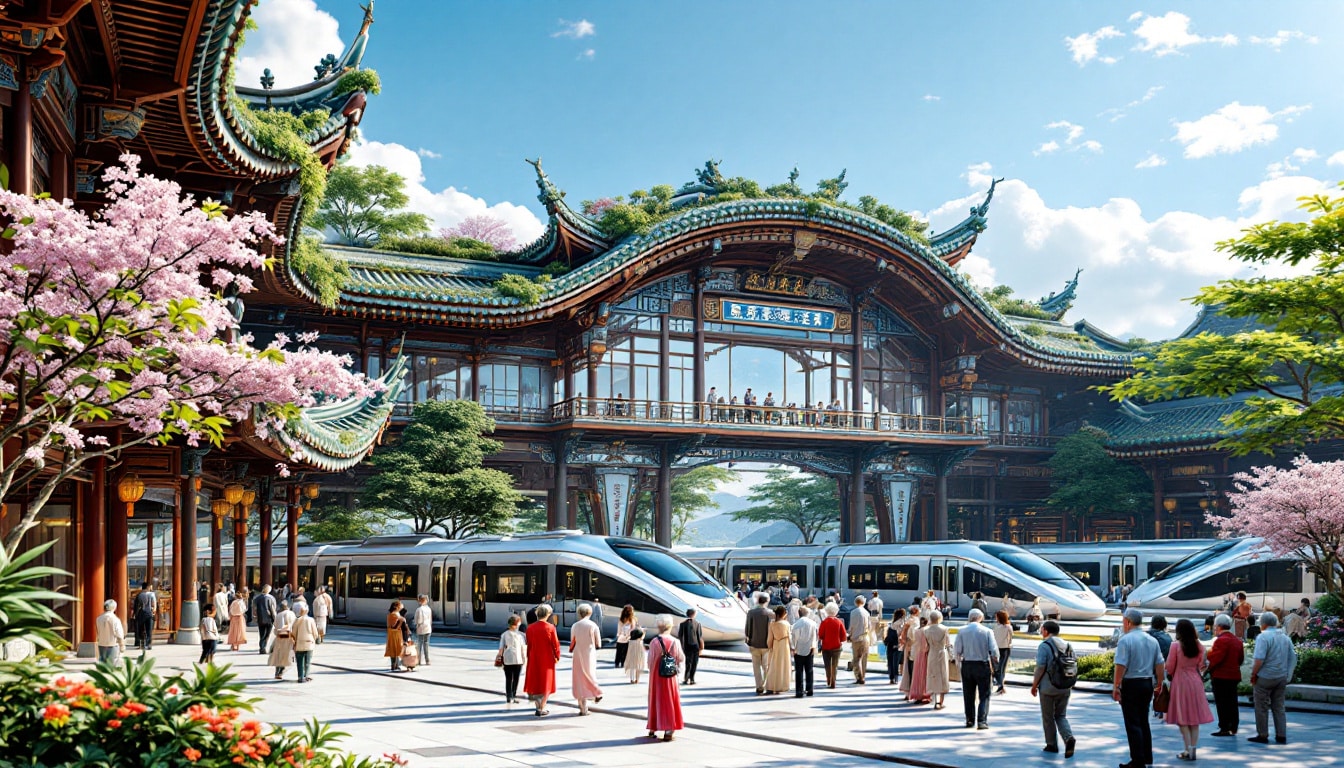China, in response to an increasingly pressing aging population, is innovating with bold solutions. After exploring concepts such as blind dates and mass marriages to encourage stagnant birth rates, the country is now considering deploying special trains dedicated to its elderly population. This initiative is part of a proactive approach aimed at adapting transport services to the needs of a generation that requires particular care, thereby ensuring a better quality of life for its seniors.

Table des matières
ToggleAfter blind dates, China innovates for its elderly population
With the growing increase of the elderly population, China finds itself at a critical juncture in its demographic history. Measures such as blind dates and mass marriages have been introduced to stimulate births, but these initiatives seem insufficient to counter the challenges posed by an aging population. In this context, the government is considering implementing special trains that will meet the specific needs of this segment of the population, facilitating their travel while ensuring a certain level of comfort. These trains will represent an innovative response to the mobility difficulties faced by seniors, while also creating links between generations.
An urgent need for innovative initiatives
The demographic situation requires creative responses. The special trains aim to strengthen social connections and avoid isolation among elderly people. The idea is to design tailored offers that will address the specifics of this audience, whether in terms of safety, comfort, or onboard services. Based on observations made during blind dates, it is crucial to recognize the importance of social interactions for elderly individuals, who may sometimes lack opportunities to meet outside their usual circle.
A long-term strategy for the future
Implementing special trains is not just a simple response to current challenges, but also constitutes a long-term initiative aimed at anticipating the needs of a rapidly growing elderly population. These efforts must be accompanied by other policies, such as support for the health and well-being of seniors. By taking into account cultural and social specifics, this strategy could pave the way for a more inclusive future for elderly people, promoting their development within society. The challenge is thus to find a balance between innovation and respect for traditions, while ensuring that all segments of society benefit from these new proposals.
A proactive response to a growing problem
China, with its aging population, faces a major demographic challenge. In an attempt to respond to this situation, the country has considered various strategies, from blind dates and collective marriages to more innovative initiatives like the establishment of special trains for its elderly population. These projects aim not only to encourage births but also to ensure better support for seniors.
The blind dates and mass marriages aim to revive birth rates in a context where the demographic balance increasingly tilts toward elderly individuals. However, these measures alone are not sufficient. It is essential to provide practical solutions for seniors, whose numbers continue to rise. Special trains, for instance, could facilitate the travel of elderly individuals, allowing them to more easily visit relatives, access medical services, or participate in various activities.
This project reflects a proactive approach from the Chinese government. Rather than passively enduring the effects of an aging population, China chooses to invest in suitable infrastructure. By providing mobility tailored to the specific needs of elderly individuals, the country contributes to their quality of life while integrating them into the social fabric. Initiatives like these trains could also serve as a model for other countries facing similar challenges related to a rapidly aging population.
Ultimately, the establishment of these special trains represents a significant advancement, blending pragmatism and innovation to improve the lives of seniors while addressing a major societal challenge.








